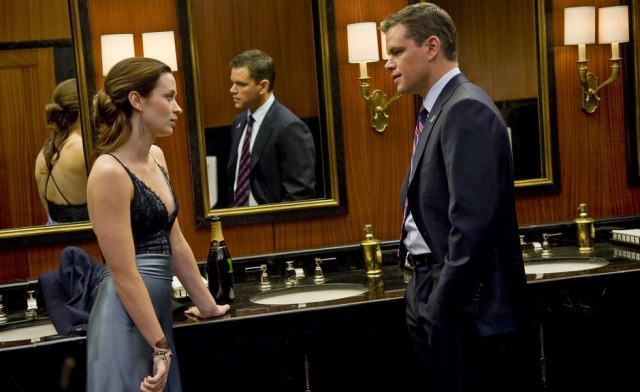Like all bureaucracies, it bumbles along and mismanages, and in the film, more enlightened individuals have to subvert the dictates of the bureaucracy in order to accomplish its goals.
The Adjustment Bureau is a romance with some interesting elements of fantasty. We liked it very much and recommend it. After we came home, I logged on and read the reviews. Seems to me, whether people enjoyed or hated this film depended mostly on their worldview. Those with fixed ideas on the nature of the cosmos seemed to dislike it, even to hate it. Both evangelical Christian Republicans and atheist materialists tended to trash it.
The links to the original story by Philip K. Dick are provided at the Wikipedia page, at this link. It was written during the paranoid years of the 1950s, a time which is well described in Emmanuel Carrere's conjuring of the man, I Am Alive and You Are Dead: A Journey into the Mind of Philip K. Dick
"I am sure, as you hear me say this, you do not believe me, or am sure that I do not believe it myself...but please take my word that I am not joking...Often people claim to remember past lives; I claim to remember a different present life. I know of no one else who has made that claim, but I rather suspect that my experience is not unique; what is perhaps unique is that I am willing to talk about it."
In the above quote, Dick seems to believe in Nietzsche's Myth of Eternal Return, or a string of universes slightly ajar of one another as in the old TV series, Sliders - The First and Second Seasons
The Adjustment Bureau
On the way home from the movie, my wife pointed out some deeper aspects of the shots--and there is splendid camera work throughout.
The movie uses its bathroom scene the surreal way Stanley Kubrick would. The lights and the mirrors are strategically placed. And some Cormac McCarthy scholar needs to draw a parallel with McCarthy's use of bathrooms, especially as in No Country For Old Men, and perhaps in comparing the jakes in Blood Meridian to the head scene in Full Metal Jacket



Going to see it Thursday.
ReplyDelete